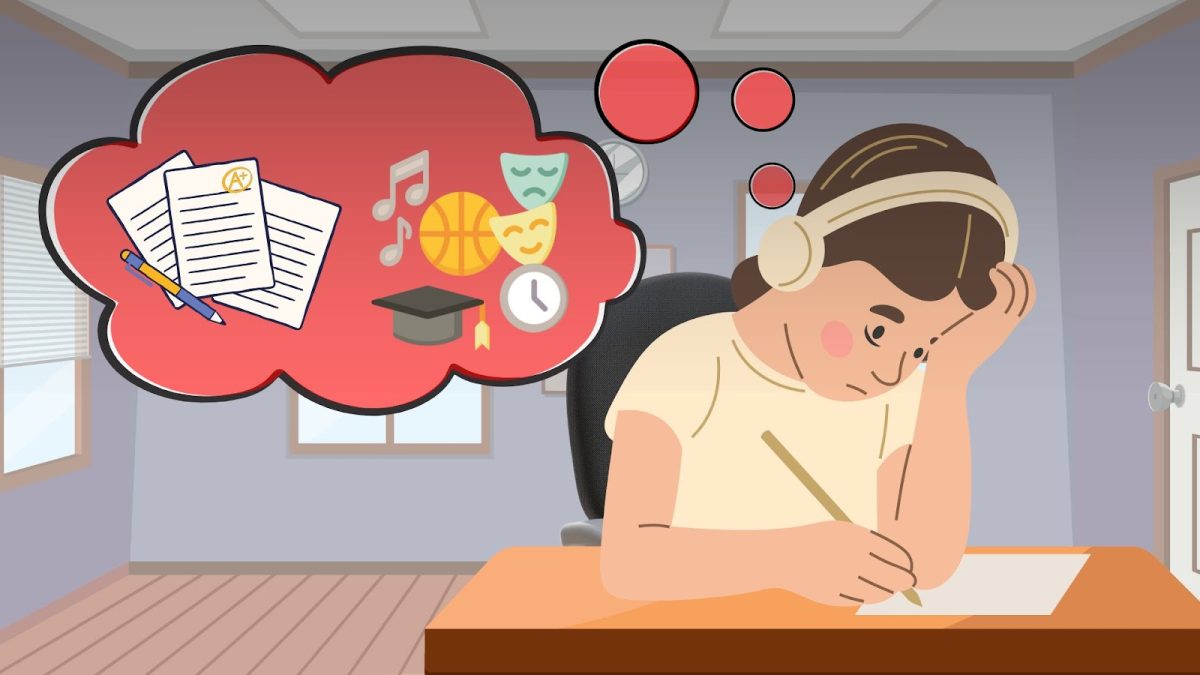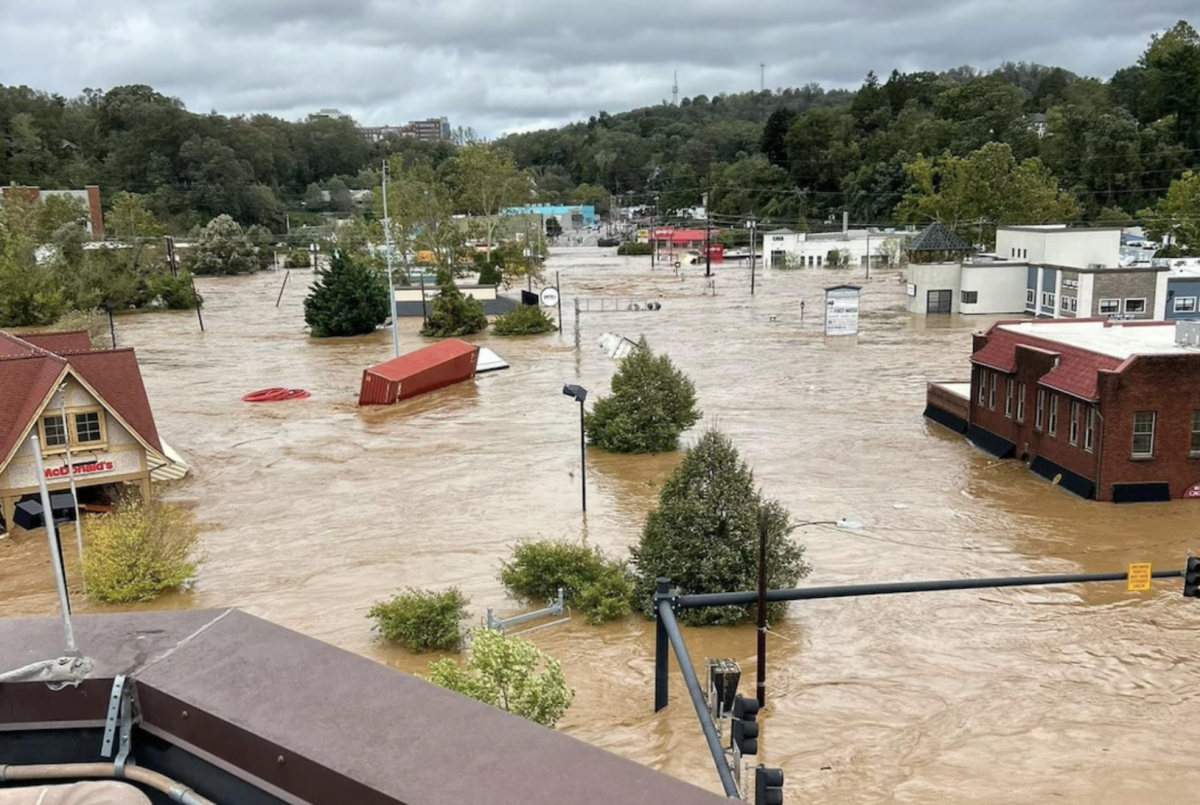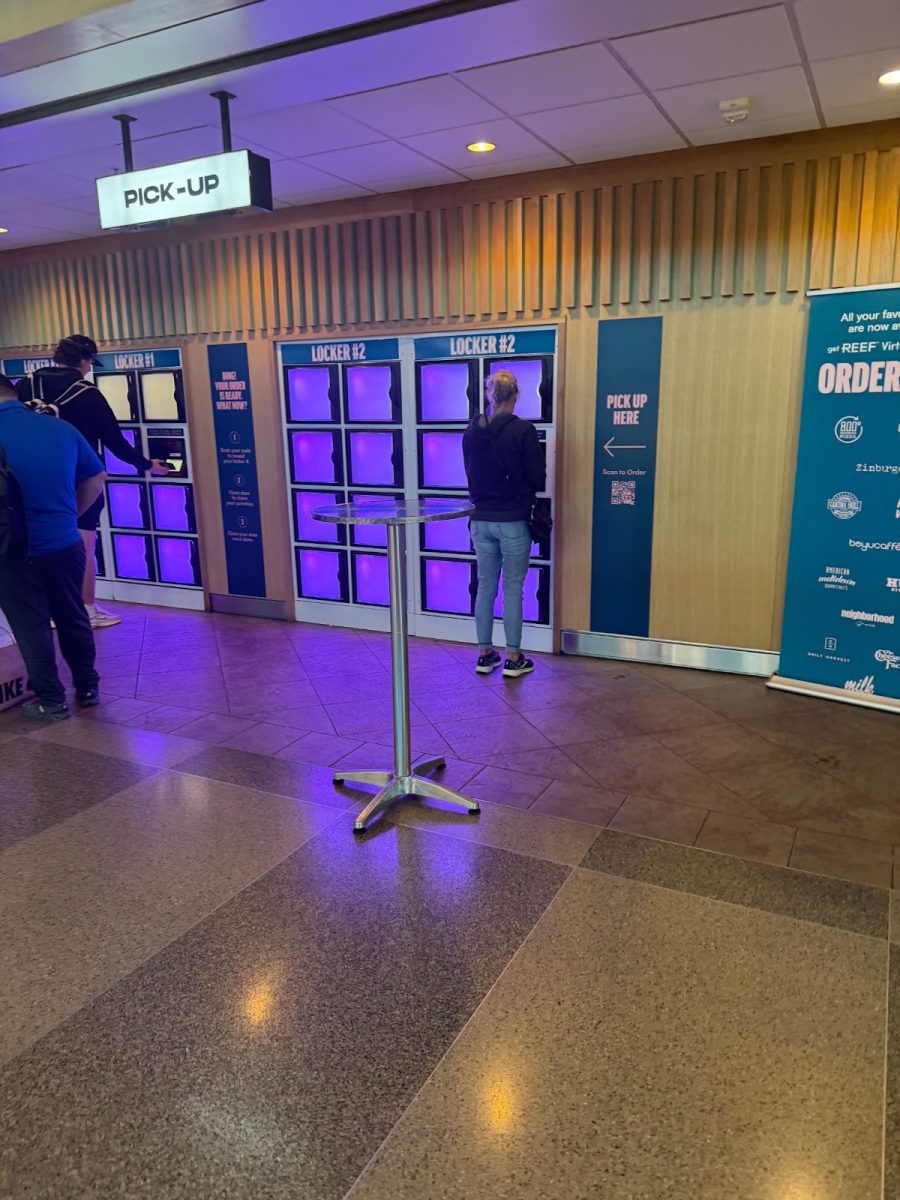With temperatures reaching over 100°F at Green Hope High School, the highly anticipated first day of school, on Aug. 28, was cut short, prompting administrators to send students home at 10:30 a.m.
In an email sent to students and parents, the issue was attributed to a ruptured chiller refrigerant line, resulting in several classrooms in the building reaching unsafe temperatures. The school assured that technicians were working alongside the vendor to resolve the issue in a timely manner. “This is a time consuming process and we won’t know the status of our chiller for another few hours,” said the email.
Green Hope sophomore Sophia Woodland (‘26) was one of many students who experienced such conditions in her classroom on Monday. She detailed her experience in one of the classrooms heavily affected by the broken air conditioning system. “It was my first period and it was the first time back to school so I was really nervous and hot, but I kept having these sort of hot flashes and they’d go away and come back,” she said.
She emphasized that while she managed to focus on her classwork under such conditions, such an environment would not be beneficial for her learning.. “The first day [of class] is easy, but I don’t think I would have been able to focus in that environment [everyday].”
Other students, however, weren’t as affected by the lack of air conditioning, but were nonetheless surprised by the early dismissal.
“I was very surprised about the HVAC incident on Monday. I don’t ever expect the first day of school to be perfect, but getting sent home early was very unexpected,” said junior Lily Hightower (‘25). “Once I had left my first period in the [modular buildings] and gotten into the main school building, I did notice that it felt quite warm and muggy.”
School closings from extreme heat events are becoming increasingly common. Last week, a Philadelphia school district dismissed 74 schools early due to inadequate air conditioning and cooling systems. Similarly, the Denver Public School System also released more than 30 schools early, attributing the dismissal to lack of air conditioning.
Despite the unexpected conditions, Green Hope Assistant Principal Mrs. Sarah Robertson felt satisfied with the school’s staff and student response to the incident. “I was proud of how staff, students and parents were all very understanding and willing to adjust their plans quickly to get students home on short notice,” she said.
She felt that the school was prepared to accommodate such changes. “This time of year, the weather is certainly unpredictable. Teaching will be adjusted so that students can learn the course material, even with unforeseen days out of school,” Mrs. Robertson said.
The long-term impacts on student success are less optimistic. A study at Harvard University analyzed the PSAT scores of 10 million students who took the standardized exam from 2001 through 2014. They found that without proper air conditioning, each 1°F increase in school temperatures decrease student learning outcomes by 1%. Given the future forecasts of climate change, the researchers said, it was likely that the benefit of implementing air conditioning systems outweighed the associated costs.
Green Hope Math teacher Ms. Chelsea Filipowski also expressed how disruptive the air conditioning issues were. “It was very humid and sticky…papers felt wet, and it was all around miserable,” she said. “I definitely think it would be distracting. It is really uncomfortable to teach and move around while being that hot, so I can imagine it’s also hard to learn.”
As students and staff face high temperatures in classrooms, schools across the state continue to deal with resolving these issues.

























































































